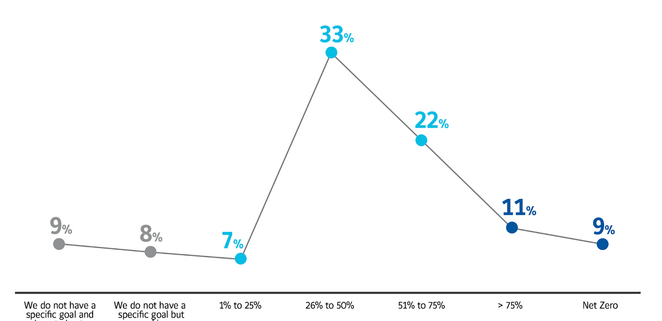Johnson Controls Finds Competitive Advantage A Main Driver for Companies Across Southeast Asia Prioritizing Sustainability
Competitive Advantage as Main Driver for Companies Across S.E.A Prioritizing Sustainability
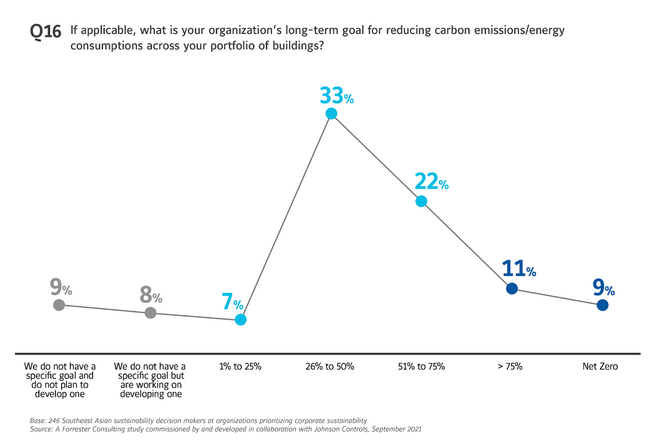
A recent global study conducted by Johnson Controls (NYSE: JCI), the global leader for smart, healthy and sustainable buildings, recently shared the results of a global study to evaluate progress companies have made in pursuing their sustainability goals, showing that sustainability is now the top business investment priority globally.
This priority is reflected consistently across regions including Southeast Asia, as indicated by 70% of the 246 business leaders surveyed across Singapore, Malaysia, Indonesia and Thailand. Results from a series of interviews and an online survey conducted by Forrester Consulting, commissioned by and developed in collaboration with Johnson Controls, found competitive advantage a clear driver.
“The survey clearly shows that business leaders in Southeast Asia see sustainability as the number one business priority now. And among the different key sustainability initiatives, energy efficient buildings and workspaces is high on the agenda, with 91% deeming this an investment priority within three years,” said Charles Lim, leader, Southeast Asia, Johnson Controls. “More than three quarters of respondents have goals to reduce carbon emissions across their portfolio of buildings by 26% or more; and 11% are gunning for net zero or carbon negative.”
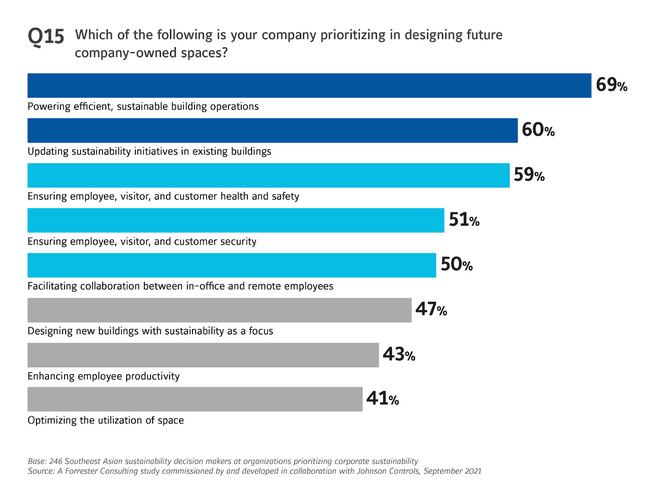
Although organizations recognize the benefits of implementing sustainability practices, many companies do not know where to start in preparing for critical business transformations. Top five hurdles today relate to managing multiple parties involved, lacking strategic plan, lacking external partners, understanding of changing policy requirements, and struggling to scale up.
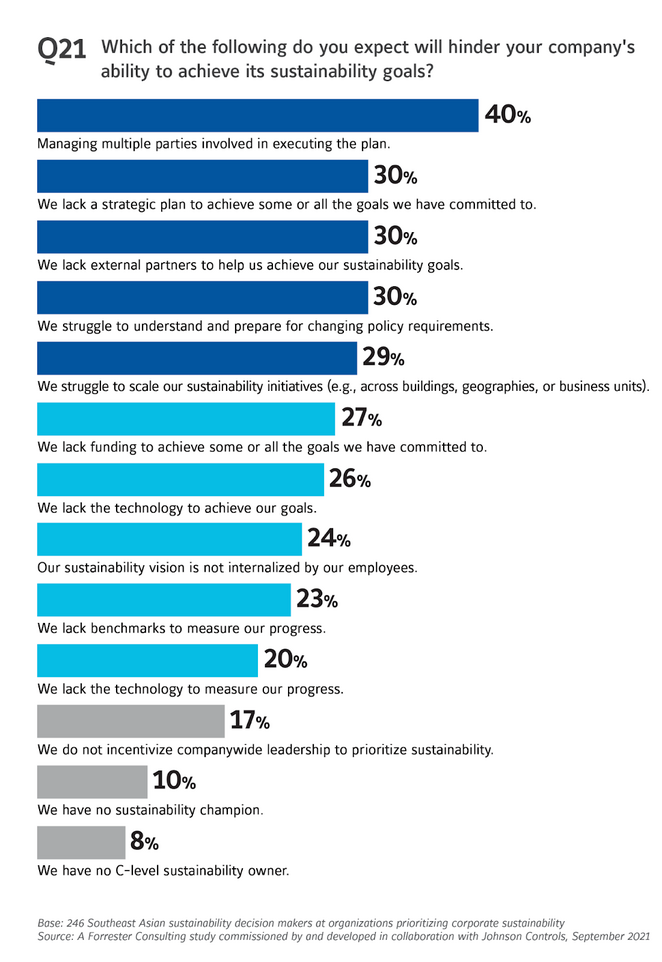
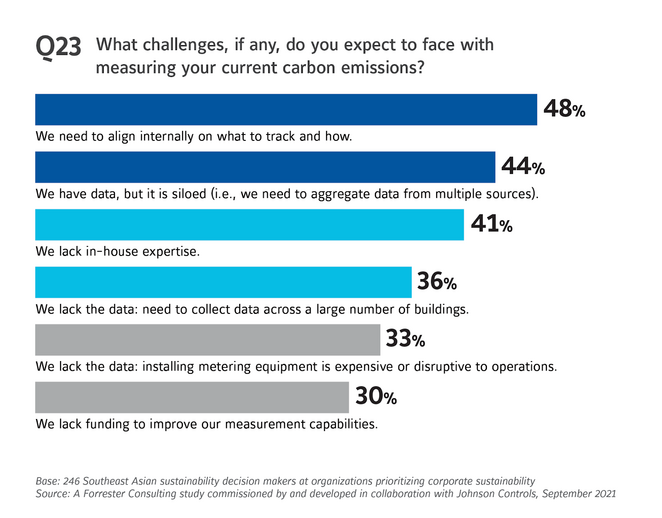
The survey further found that only 18% of respondents in Southeast Asia have ESG reporting software to help measure their progress while 41% of respondents believe their organizations have a shortage of internal expertise, preventing them from tracking their carbon emissions effectively.
“In the race to decarbonization, companies must align priorities to the demands of many stakeholders, work with partners to develop transparent sustainability roadmaps, and identify metrics and adopt tools to track progress,” said Mei Peng Hor, business development director, sustainable infrastructure, Asia Pacific, Johnson Controls. “More customers are looking for ways to make this process easier, and are transferring their sustainability commitments and the risk to reach these targets to an external partner that has the capability, scale and ecosystem. Our OpenBlue Net Zero Buildings as a Service, for example, has helped the University of Hawaii reduce energy use by 80% across four campuses, saving US$80 million, through energy retrofit and renewable energy solutions.”
The global survey found that North America is the most aggressive with their carbon reduction goals. While the urgency among the private sector is picking up in Southeast Asia, more is needed. The ASEAN State of Climate Change Report noted that “there are still large gaps in implementation and ambition” based on emission reduction targets in 2030 and emission trends up to now.


